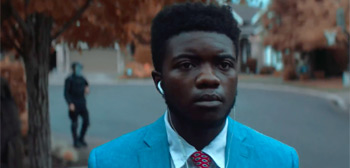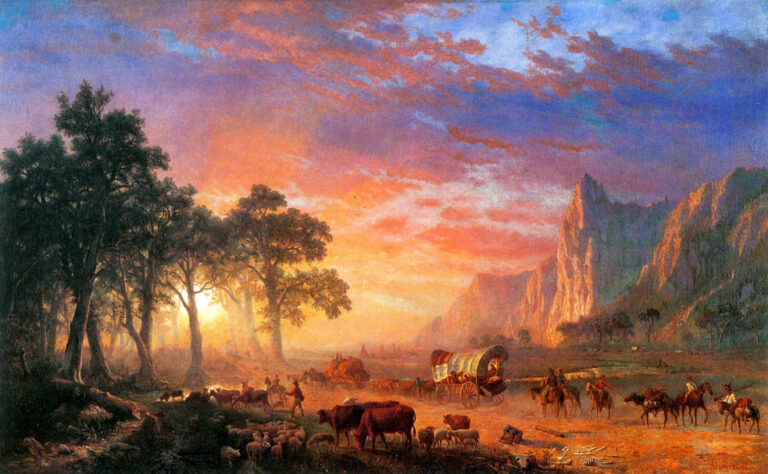Get to Know Cary Grant with These 11 Essential Movies
There are some actors who are remarkably gifted at comedy. They have perfect timing, can pratfall with the best of them, and deliver punchlines with ease. There are also some actors especially inclined towards dramatic roles. They can be brooding and dashing as romantic leads and action heroes. And then, every now and again, there are actors who can nail both as if nothing comes more natural to them, turning on a dime from one to the other and consistently landing each performance. There’s no one who did this better than Cary Grant.
The Old Hollywood legend refined his screen talent into fine art. Grant is often cited as continually playing himself in films, and, yes, the career-long throughlines are unmissable, but he’s far from ever being one-note. Cary Grant the person and Cary Grant the performer — and the spacious center of the Venn diagram between the two — was dynamic and charming. He’s simultaneously mysterious and affable. To see him on screen is to at once know him and know there’s so much more than what’s seen at first glance. An open book rich with subtext, if you will.
Grant’s career spanned from the pre-Code era to the dawning of New Hollywood. As a result, deciding where to begin with his impressive filmography is quite a daunting task. Thankfully, we (that is, me and Anna Swanson) have assembled the highlights, the films that will appeal to newbies and aficionados alike. So whether you’re diving into Grant’s filmography for the first time or revisiting some classics, read on to find out what essential movies you can’t miss.
Merrily We Go to Hell (1932)
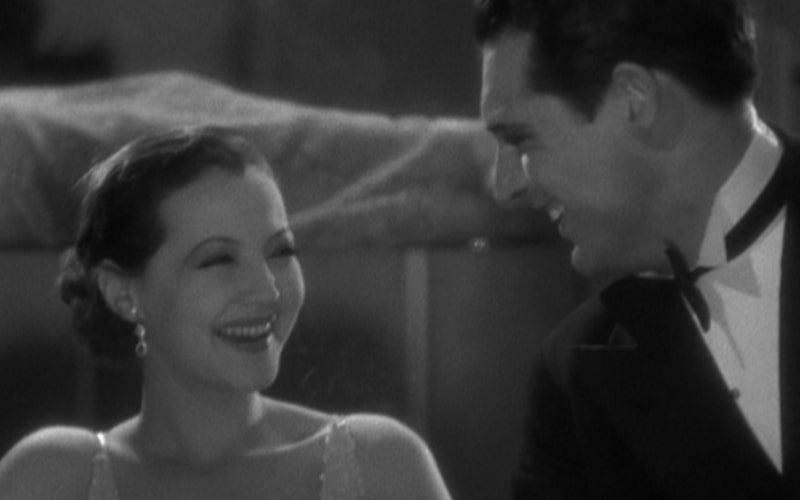
One of Grant’s early roles pairs him opposite the darling Sylvia Sidney in Dorothy Arzner‘s pre-Code romance Merrily We Go To Hell. Sidney stars as socialite Joan, who in revenge against her philandering, alcoholic husband, Jerry (Fredric March), begins her own affair with Grant’s character. It’s a relatively minor role, but Grant absolutely steals the show as the other man — an archetype he similarly excelled in with Josef von Sternberg’s Blonde Venus, released the same year.
Although Grant was still a few years away from being a household name, it’s easy to see why that was in his future. He’s charming and suave as he practically radiates on screen. His dashing character also makes for easy shorthand in the plot — we barely need to see him with Joan to understand immediately that Jerry better shape up and try to compete with the new catch on his wife’s arm. That he even stood a chance against Grant at all, well, that’s the magic of movies. (Anna Swanson)
I’m No Angel (1933)
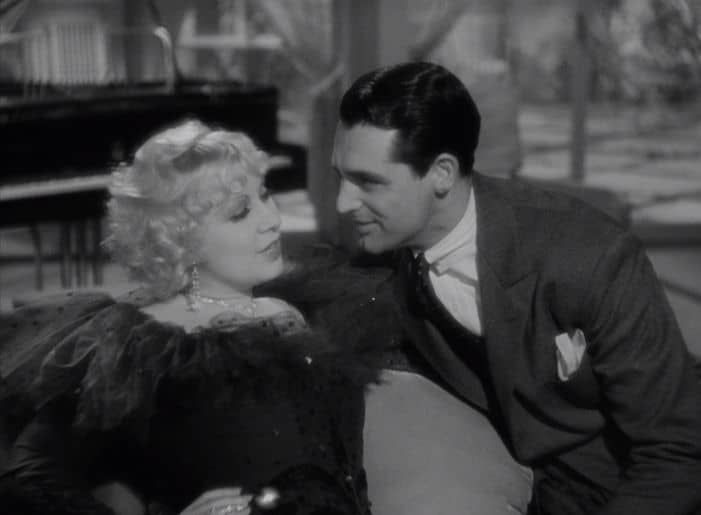
Before Grant solidified his star power as a comedic leading man, he co-starred in two films with sex-icon Mae West. These pre-Code gems include I’m No Angel, where Grant plays the rich man with whom West’s character finally falls in love after years of casual relationships with wealthy guys. However, her former beaus are not ready to give her up, and they do whatever they can to break up her engagement.
Grant comes into the film fairly late, but he makes a huge impact. After all, to be a man who ties down a Mae West character, Grant has to convince the audience he’s pretty damn remarkable. This early performance shows his ability to match the sexual energy of one of the most iconic seductresses in Hollywood history. He utters innuendos and raunchy dialogue with such ease. As the Hays Code came into power a year later and ruled Hollywood throughout the rest of Grant’s career, seeing him so explicitly sexual alongside West is a real treat to visit today.
The Awful Truth (1937)
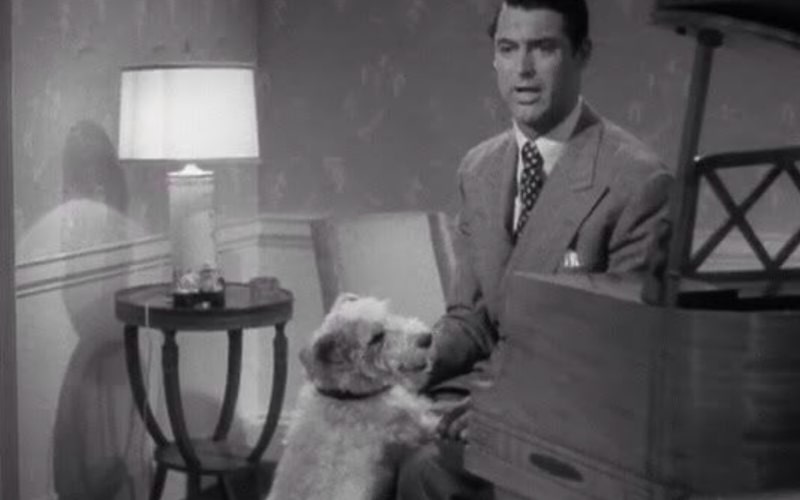
No Cary Grant list is complete without the inclusion of his three-time screen partner Irene Dunne. The Awful Truth is the first of their films together (the others are My Favorite Wife and Penny Serenade) and features Dunne and Grant in a comedy of remarriage as a feuding couple who won’t let some silly little divorce proceedings interfere with them being in each other’s lives — whether the other likes it or not!
Director Leo McCarey encouraged improvisation on the set, and the result is some top-tier comedy from both stars. With the electric chemistry between Dunne and Grant, the film is as romantically charming as it is genuinely funny. And for fans of The Thin Man, there’s a bonus treat as the film features the talents of Skippy the dog — a.k.a. Asta — as the beloved canine companion of Dunne and Grant’s characters. (Anna Swanson)
Topper (1937)
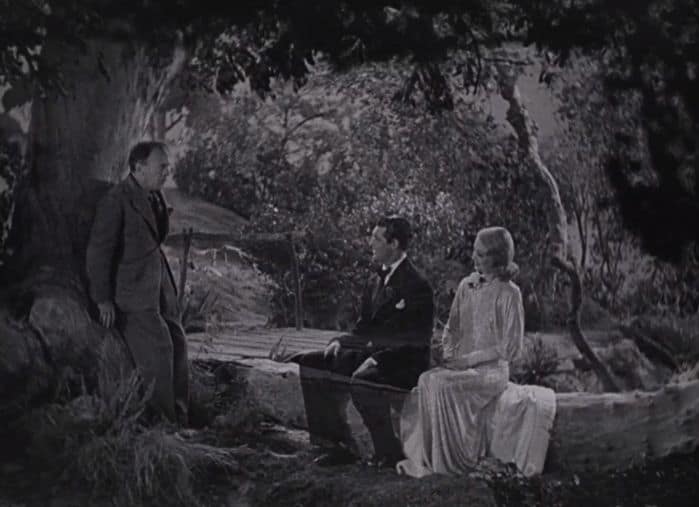
Grant needed to be convinced by Hal Roach that the role of George Kerby in his film Topper would be a huge hit. Roach succeeded, with the help of a little extra money, and Grant signed on to star alongside Constance Bennett. In the film, Kerby and his wife (Bennett) die, lightheartedly, in an automobile accident and get stuck as ghosts that haunt grumpy old man Cosmo Topper, played by Roland Young. Grant was concerned about the supernatural aspects of the movie since ghosts were a rarity in Hollywood films at the time. Well, they were rare in movies that were taken seriously by critics and audiences alike anyway.
Thankfully, Grant’s decision to go through with this silly little ghost comedy was a great decision. Audiences went crazy for the screwball antics of the Kerby ghosts and the successful special effects needed to achieve the supernatural aspects of the story. The movie was so popular it was followed by two sequels, the first including Grant and Bennett again. This fun comedy jump-started Grant’s involvement in screwball comedies and his status as an international movie star. He would be a minor character no more.
Only Angels Have Wings (1939)
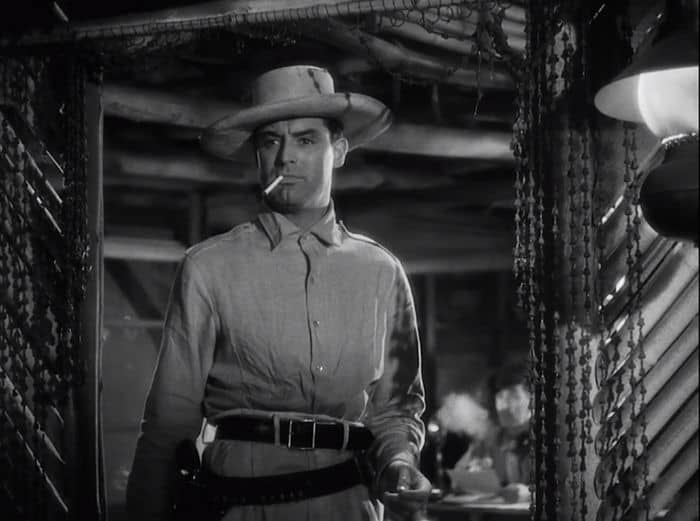
As one of five films Grant made with Howard Hawks, Only Angels Have Wings is distinctly different from their other strictly comedic collaborations. Grant stars as daredevil airplane pilot Geoff, who delivers cargo through a treacherous stretch of mountains in South America. Showgirl Bonnie (Jean Arthur) falls in love with Geoff, and his exciting bachelor life gets complicated. The arrival of another couple — a flyer and his wife, played by Rita Hayworth — brings even more distractions. They have a past with Geoff, and he must balance the drama on the ground with the trials of his work in the air.
Grant handles the rugged role of Geoff very well for usually playing rich or established men. Geoff’s fascination with putting himself in danger and his refusal to settle down are what attracts Bonnie. Yet, this excitement is not without serious worries on her part. Grant’s performance makes Geoff an irresistible character for the audience to fall in love with. Beyond his wonderful comedy and romance abilities, this role proves he has great dramatic talent as well.





